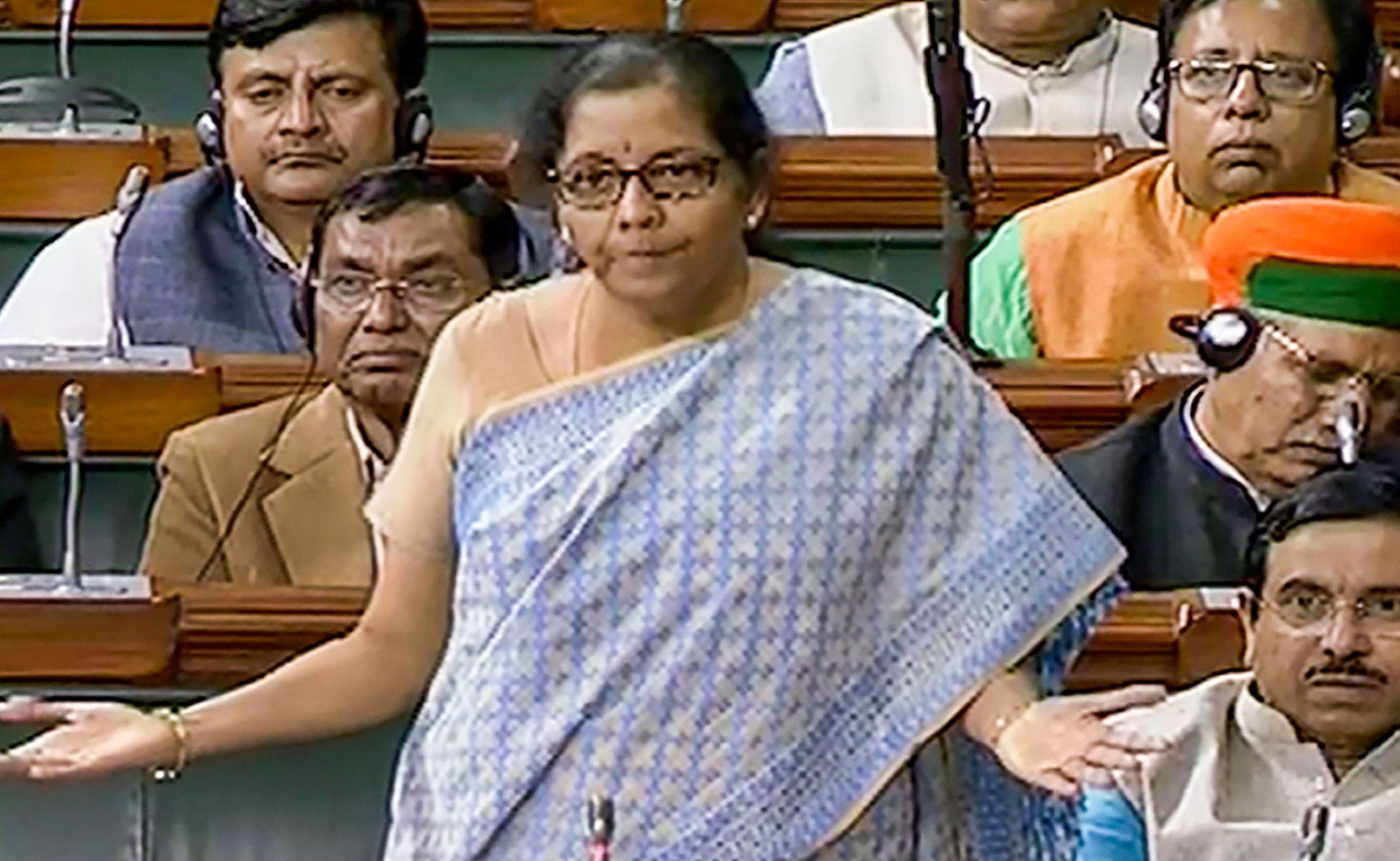India's economic growth is expected to 'strongly rebound' to 6-6.5 per cent in 2020-21 from 5 per cent estimated in the current fiscal, the Economic Survey said on Friday, adding that the government with a strong mandate has the capacity to expedite reforms.
The Economic Survey 2019-20 tabled in Parliament said there are tentative signs of bottoming out of slowdown in manufacturing activity and global trade, which will have a positive impact on growth in the next fiscal.
The government's thrust on affordable housing, Make in India, reduction in corporate tax rate, and improvement in ease of doing business, besides others factors, will help in boosting economic growth, it said.
However, it has also cautioned that continued global trade problems, escalation in US-Iran geopolitical tensions, and weak economic recovery in advanced economies are the downside risk which have the potential to drag down the growth.
'On a net assessment, it appears that the upside risks should prevail, particularly when the government, with a strong mandate, has the capacity to deliver expeditiously on reforms.
'GDP growth of India should strongly rebound in 2020-21 and more so on a low statistical base of 5 per cent growth in 2019-20,' said the survey tabled by finance minister Nirmala Sitharaman.
On a net assessment of both the downside/upside risks, it said 'India's GDP growth is expected to grow in the range of 6 to 6.5 per cent in 2020-21.'
On 2019-20 GDP, it said the estimate of 5 per cent growth suggests an uptick in expansion in the second half of 2019-20.
The survey also stresses that deceleration in GDP growth can be understood within the framework of a slowing cycle of growth. The financial sector has acted as a drag on the real sector.
The survey said that the uptick in second half of 2019-20 would be mainly due to 10 positive factors like picking up of Nifty India Consumption Index for the first time this year, an upbeat secondary market, higher FDI flows, build-up of demand pressure, positive outlook for rural consumption, rebound of industrial activity, steady improvement in manufacturing, growth in merchandise exports, higher build-up of foreign exchange reserves and positive growth rate of GST revenue collection.
The document also emphasised that merger of public sector banks may increase the financial strength of the merged entities, lower the risk aversion and result in lowering of lending rates.
Further, as the implementation of GST further settles down, the increased unification of the domestic market may reduce business costs and facilitate fresh investment.
Reforms in land and labour market may further reduce business costs, said the survey, presented a day before Sitharaman's Union Budget 2020-21.










